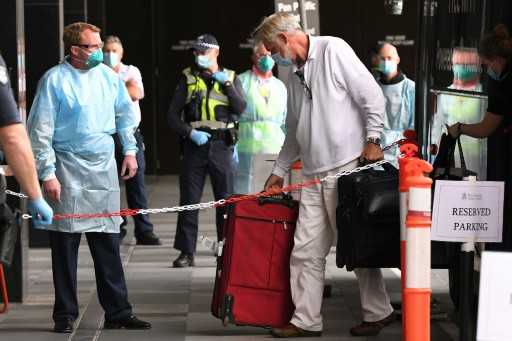Strains show found in Australia's 'gold standard' quarantine system
11 February, 2021

New coronavirus variants are forcing Australia and New Zealand to rethink already-stringent quarantine guidelines for abroad visitors, even as their devices are replicated all over the world.
Officials in Australia's Victoria point out on Wednesday became the most recent to warn that the spread of the UK, Brazilian and South African mutations mean it has the 14-day time mandatory quarantine should be toughened.
"These hyper infectious strains are proving very hard to contain," Victoria state premier Dan Andrews said, signaling approaching reforms and announcing the snap closure of a good Melbourne quarantine resort at the center of a fresh leak in to the community.
"We all need to acknowledge that quarantine and the public health response today should be, by necessity, different than it was per month ago, six months ago," he said.
Health authorities found in both Australia and New Zealand this week launched full assessments of quarantine features and types of procedures. Proposals range from developing outback quarantine centers to evaluating arrivals more regularly and for longer.
Since the start of the pandemic, around 320,000 travelers have already been scooped up at Australian and New Zealand ports and airports, shuttled to quarantine hotels and confined with their rooms for two weeks.
The devices have contained thousands of conditions, helping both countries continue to be largely free from COVID-19.
Places all over the world -- including Britain, Canada and Thailand -- want to replicate the relative success of such devices, leading Australia's overall health minister to boast the country's quarantine is the "gold standard" internationally.
However in both Australia and New Zealand there is growing concern about the toughness of the protocol.
As infections world-wide topped 100 million, the quantity of people arriving with the virus has increased.
On Wednesday alone, New Zealand reported it had detected the virus in travelers from Germany, Tanzania and the United Arab Emirates.
Authorities are also viewing more persons arriving with traces of aged infections, making it more challenging to sort people that have active attacks from others.
But the most acute emerging problem may be the climb of visitors with an increase of virulent strains -- reaching 105 previously in Australia -- with plenty of infections spreading to resort workers, transport personnel and other quarantined travelers.
Several times in recent months the virus has jumped from hotels to the community -- forcing an incredible number of residents on Auckland, Brisbane, Melbourne and Perth into snap lockdowns.
In Victoria, almost 1,000 personnel from three outbreak accommodations are in quarantine themselves.
Few are actually suggesting completely closing the borders -- particularly as around 40,000 Australians are still struggling to return home because of strict caps about daily arrivals.
But measures which may have recently been introduced -- barring resort quarantine workers from having second careers, replacing floor covering with vinyl flooring, staggering mealtimes and leaving gaps between areas -- are unlikely to make facilities leakproof.
"It's good and truly period to go quarantine to remote locations, to reduce the chance of transmission into dense cities," said Adrian Esterman, a specialist in biostatistics and epidemiology at the University of South Australia.
Australia has already determined three remote locations that could be adapted to handle quarantine arrivals -- including a great air force foundation and a great offshore immigration detention center.
Prime Minister Scott Morrison -- with one eye on the next reelection marketing campaign -- has been keen to have credit rating for the country's coronavirus response.
But quarantine, like much of Australia's measures to control the virus -- extreme lockdowns, blanket testing and social distancing rules -- has been introduced and function by state authorities.
So far, Canberra has been reluctant to take on the reins.
Chief medical officer Paul Kelly warned on the subject of Tuesday that positioning facilities in remote spots under federal control was not without risk.
"Just about the most risky situations of transmission during... resort quarantine is actually the transportation from the airport terminal to some of the facility. Therefore, the longer that's, the more risk there is."
He added there are "a variety of reasons why you actually need good care on-site" that may not be available in remote areas.
During quarantine "we've viewed mental medical issues, we've seen extreme other physical issues just like end-stage cancer, people about to give birth".
He defended the system as it stands.
"This is really an excellent system which has had some problems recently, which we're addressing," he said. "Could it be better? Of program, all systems can be continuously improved."
Source: japantoday.com
TAG(s):
